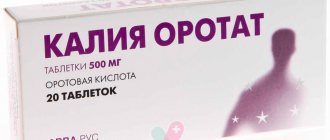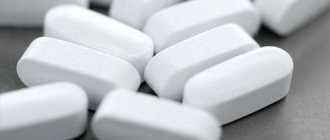What is inositol?
Although inositol is often referred to as vitamin B8, it is not a vitamin at all, but rather a vitamin-like type of sugar with several important functions.
Inositol plays a structural role in your body as a major component of cell membranes ().
It also affects the action of insulin, a hormone needed to control blood sugar. Additionally, it affects neurotransmitters in your brain such as serotonin and dopamine (, ).
It is estimated that the typical modern human diet contains about 1 gram of inositol per day. Food sources rich in inositol include grains, beans, nuts, and fresh fruits and vegetables ().
However, additional doses of inositol are often higher. Researchers have studied the beneficial effects of taking inositol in doses of up to 18 grams per day, which produced promising results and caused only minor side effects.
Summary:
Inositol is a type of sugar that helps provide structure to your cells. It also affects the hormone insulin and the function of neurotransmitters in your brain.
Power supplies (table)
Inositol can be found in food. Rich sources include melon, oranges and other citrus fruits. Inositol can also be obtained naturally in lecithin oil, seeds, whole grains, legumes, nuts, yeast, liver, brown rice, cereals, soy flour and green leafy vegetables.
| Grocery list | Inositol content, mg per 100 g |
| Sprouted wheat grains | 724 |
| Rice bran | 438 |
| Barley groats | 392 |
| Oatmeal porridge | 266 |
| Oranges | 249 |
| Green pea | 241 |
| Tangerines | 198 |
| Roasted peanuts | 178 |
| Grapefruit | 151 |
| Raisin | 133 |
| Lentils | 131 |
| Green beans (garden) | 126 |
| Melon | 119 |
| Cauliflower | 98 |
| Carrot | 93 |
| Peaches | 91 |
| Green onions | 87 |
| White cabbage | 68 |
| Strawberries | 67 |
| Strawberry | 59 |
| Beef liver | 54 |
| Tomatoes | 48 |
| Chicken's meat | 44 |
| Pork | 38 |
| Chicken eggs | 38 |
| Bananas | 31 |
| Hard cheeses | 26 |
| Potato | 28 |
| Apples | 23 |
| Flounder | 22 |
| Beet | 22 |
| Canned salmon, sardines | 18 |
| Cow's milk | 17 |
| Beef | 12 |
May be good for mental health
Inositol may help balance important chemicals in your brain, including those believed to influence your mood, such as serotonin and dopamine ().
Interestingly, researchers have found that some people with depression, anxiety, and compulsive disorders have lower levels of inositol in their brains (, ).
Although more research is needed, several studies suggest that inositol may be an alternative treatment for mental illness. It also appears to cause fewer side effects than traditional medications ().
Panic disorder
Although research is still limited, inositol supplements may be useful in treating panic disorder, a severe form of anxiety.
People with panic disorders experience frequent panic attacks, which are sudden feelings of intense fear. Symptoms include: fast heartbeat, shortness of breath, dizziness, sweating, and tingling or numbness in the arms ().
In one study, 20 people with panic disorder took either 18 grams of the supplement or a common anxiety medication daily for 1 month. Those taking inositol had fewer panic attacks per week compared to people taking the anti-anxiety medication ().
Likewise, in a 4-week study, people experienced fewer and less severe panic attacks when taking 12 grams of inositol per day ().
Depression
Inositol may reduce symptoms of depression, but studies have mixed results.
For example, an early study found that taking 12 grams of an inositol supplement daily for 4 weeks improved symptoms in people with depression ().
In contrast, subsequent studies failed to demonstrate significant benefits ().
Overall, there is not yet enough evidence to show whether inositol affects depression.
Bipolar disorder
As with other mental illnesses and conditions, research into the effects of inositol on bipolar disorder is limited. However, results from preliminary studies appear promising (, ).
For example, a small study of children with bipolar spectrum disorder found a reduction in symptoms of mania and depression when taking a combination of 3 grams of omega-3 fatty acids and up to 2 grams of inositol daily for 12 weeks ().
Additionally, research suggests that 3-6 grams of inositol taken daily may help reduce symptoms of psoriasis caused by lithium, a medication often used to treat bipolar disorder (,).
Summary:
Although more research is needed, inositol shows potential as an alternative treatment option for mental illnesses and conditions, including panic disorder, depression and bipolar disorder.
Contraindications
The only contraindication is the presence of allergic reactions to a substance obtained artificially.
In addition, the recommended dosage must be followed. Individual intolerance usually occurs when the body receives a sufficient amount of substances from food and does not need additional intake. The consequence will be the development of hypervitaminosis.
Its main features:
- dry skin, rashes
- gastrointestinal disturbances, constipation or diarrhea
- nausea
- headache
- confusion
If such symptoms occur, you should stop taking the drug and consult your doctor immediately.
The drug should be used with caution during pregnancy and lactation. Excess choline and inositol can lead to uterine hypertonicity, and use during breastfeeding will exceed the child’s need for the substances.
May reduce symptoms of polycystic ovary syndrome
Polycystic ovary syndrome (PCOS) is a condition that causes hormonal imbalance in women, which can lead to irregular periods and infertility. Weight gain, high blood sugar and unwanted levels of cholesterol and triglycerides are also associated with PCOS ().
Inositol supplements may improve PCOS symptoms, especially when combined with folic acid.
For example, clinical studies show that daily doses of inositol and folic acid can help lower blood triglyceride levels. They may also improve insulin function and slightly lower blood pressure in patients with PCOS (, , ).
Moreover, preliminary studies have shown that the combination of inositol and folic acid may promote ovulation in women with fertility problems due to PCOS (, ).
In one study, 4 grams of inositol and 400 mcg of folic acid taken daily for 3 months induced ovulation in 62% of women ().
Summary:
Inositol may help lower blood triglyceride levels, improve insulin function, lower blood pressure, and promote ovulation in women with polycystic ovary syndrome (PCOS).
Role in the body
The main role of vitamin B8 in the body is to transport fats and help in the breakdown of fats. This is especially beneficial for organs such as the brain and heart, where fat deposits are detrimental to health.
Vitamin B8 functions as a neurotransmitter, serving as a second messenger in a number of signal transduction pathways; helping to maintain nervous system function. Requires neurotransmitters such as dopamine, norepinephrine, serotonin, acetylcholine and GABA to send messages, so they play a vital role in mental health and cognitive function.
Inositol's ability to promote brain cell health means it is used to support memory and concentration and is generally good for overall cognitive performance; and is also used to treat depression, anxiety and improve mood.
This natural sweet powder is used as a preventative and treatment for many different diseases such as
- eczema;
- Schizophrenia;
- Alzheimer's disease
- and ADHD (attention deficit hyperactivity disorder).
Inositol is often taken by those who want to lose weight or maintain a normal healthy body weight, as it plays a vital role in regulating metabolism and stimulating the breakdown of fats in the body.
If you suffer from sleepless nights, vitamin B8 can be a great supplement, especially effective when combined with other sleep-inducing medications such as green tea. It synthesizes serotonin and melatonin (the most important hormones the body needs for sleep). Combined with inositol's ability to improve sensitivity to serotonin receptors, this blow could help regulate sleep cycles.
It's worth noting that both caffeine and antibiotics can reduce the amount of inositol in the body, so if you regularly consume a lot of caffeine or are on antibiotics for an extended period of time, you may be advised to take an Inositol supplement.
- Vitamin B8 plays a vital role in regulating gene expression.
- Is key to various elements of cell biology and is of paramount importance for the regulation, health, differentiation and migration of cells.
- Helps maintain cell membrane health.
- Plays an active role in insulin signaling; critical for regulating glucose and lipid metabolism.
- Plays an important role in regulating intracellular calcium concentration and release in the body.
- Plays a role in regulating mood and neural signaling.
- Improves insulin sensitivity for PCOS, fertility and weight loss.
Indications for use
- Diabetic nerve pain.
- Increased energy levels.
- Increase mental alertness and focus.
- Panic disorder.
- Anxiety.
- High cholesterol levels.
- Liver disorders.
- Improves blood circulation and lowers blood pressure.
- Insomnia.
- Opportunities to fight cancer.
- Depression.
- Schizophrenia.
- Alzheimer's disease.
- Attention deficit hyperactivity disorder (ADHD).
- Autism.
- Respiratory conditions.
- Constipation.
- Psoriasis, eczema and other skin conditions.
Helps control risk factors for metabolic syndrome
Clinical studies suggest that inositol supplements may be beneficial for patients with metabolic syndrome (, ).
Metabolic syndrome is a group of conditions that increase the risk of developing chronic diseases, including cardiovascular disease and type 2 diabetes.
Specifically, five conditions are associated with metabolic syndrome (MS):
- Excess belly fat
- High triglyceride levels in the blood
- Low levels of “good” HDL cholesterol
- High blood pressure
- High blood sugar
In a 12-month clinical study, 80 women with metabolic syndrome were given 2 grams of inositol daily. As a result, it lowered their blood triglyceride levels by an average of 34% and their total cholesterol levels by 22%. Improvements in blood pressure and blood sugar levels were also observed ().
Surprisingly, 20% of women taking inositol no longer met the criteria for metabolic syndrome by the end of the study ().
Summary:
Inositol may help control metabolic risk factors by helping to lower blood triglycerides, blood pressure, and blood sugar levels. It may also improve cholesterol levels.
How did humanity learn about B8?
In the scientific, medical and pharmaceutical literature, other names are more often used for B8 - inositol or inositol. The vitamin was discovered as a result of a series of experiments on laboratory rats. The German chemist Liebig began to study the role of certain substances in the diet of animals. The year was 1848, when the scientist identified a pattern: it is enough to remove a newly discovered substance from the diet of rats, and the animals’ growth stops, they lose their hair, and the level of cholesterol in the blood rises sharply. But as soon as you restore the previous menu, all unpleasant symptoms disappear. This is how the world learned about the “anti-balding factor” and the role of B8 for living beings.
Content:
- How did humanity learn about B8?
- Mysterious substance number 8 and its role in human life
- Inositol, where can I find you?
- Why does B8 deficiency occur?
- Who needs inositol
- Assimilation and interaction
- Pharmacy inositol: everything you need to know
- Application in cosmetology
Although inositol officially joined the B family in 1902, scientists still debate whether B8 is a vitamin. Arguments of adherents of the “vitamin” theory: inositol, like other vitamins of the group, is water-soluble and is destroyed under the influence of high temperatures. But there is another version: B8 is just a vitamin-like substance, since the body is able to produce three-quarters of the required dose on its own (it is synthesized by the intestinal microflora from glucose received from outside). But no matter what B8 is called in the end, its role in the body will not change.
May prevent diabetes during pregnancy
Some women experience high blood sugar during pregnancy. This condition is called gestational diabetes mellitus (GDM) and causes complications in 10% of pregnancies each year (, ).
In animal studies, inositol has been directly linked to the function of insulin, a hormone that regulates blood sugar levels (, ).
Only a limited number of studies have examined the effects of inositol on GDM in humans. However, some believe that a combination of 4 grams of myo-inositol and 400 mcg of folic acid may be beneficial in preventing GDM when taken daily during pregnancy (, , ).
However, more research is needed as other studies have not shown the same effects ().
Summary:
Inositol may help prevent high blood sugar during pregnancy when taken in combination with folic acid, but more research is needed to confirm this effect.
Story
The name "Inositol" comes from the Greek word "inos", which loosely translates to "muscle". This clever pseudovitamin was first discovered in 1850 by a German physician named Johannes Joseph Scherer, who found it in muscle tissue. It was originally called "muscle sugar" and later became known as Inositol. It was first classified as a B vitamin in the 1940s. Although Inositol has now lost this status as it is not technically an essential vitamin as it occurs naturally in the human body, it nevertheless has a number of important functions in the body and can be classified as a "conditionally" essential nutrient.
Other names: 1,2,3,4,5,6-Cyclohexanehexol, 1,2,5/3,4,6-inositol, (1S)-inositol, (1S)-1,2,4/3,5 ,6-inositol, anti-alopecia factor, (+) - chiro-inositol, cis-1,2,3,5-trans-4,6-cyclohexanehexol, cyclohexitol, damrozot, D-chiro-inositol, D-myo-inositol, anti-alopecia factor , hexahydroxycyclohexane, Inositol, inositol monophosphate, lipositol, meso-inositol, meso-inositol, inositol monophosphate, muscle anti-alopicidal factor, myo-inositol, vitamin B8.
Inosine Pranobex
Inosine pranobex (also known as inosine acedoben dimepranol or methisoprinol) is an antiviral drug that is a combination of inosine and dimepranol acedoben (with the salt of acetamidobenzoic acid and dimethylaminoisopropanol) in a 1 to 3 ratio.
Inosine pranobex has no effect on the viral particles themselves. Instead, it acts as an immunostimulant, analogous to thymus hormones. It is most commonly used to treat rare complications of measles, subacute sclerosing panencephalitis, in combination with intrathecal interferon therapy.
Other Potential Benefits
Inositol has been studied as a potential treatment for many diseases.
In addition to those already mentioned, the study suggests that inositol may be beneficial for the following conditions:
- Respiratory distress syndrome : Inositol appears to be beneficial for premature newborns as it helps improve breathing problems due to underdeveloped lungs ().
- Type 2 diabetes : Preliminary research suggests that inositol and folic acid taken daily for 6 months may help control blood sugar in people with type 2 diabetes ().
- Obsessive-compulsive disorder (OCD) : A small study suggests that 18 grams of inositol taken daily for 6 weeks may reduce OCD symptoms ().
Summary:
Inositol is a potential treatment option for premature infants with respiratory distress syndrome. It may also help control blood sugar levels in people with type 2 diabetes and may reduce symptoms of obsessive-compulsive disorder.
Side effects and interactions
Inositol supplements appear to be well tolerated by most people.
However, mild side effects have been reported at doses of 12 grams per day or more. These include nausea, gas, trouble sleeping, headache, dizziness and fatigue ().
Pregnant women in studies took up to 4 grams of inositol daily without any side effects, although more research is needed to draw definitive conclusions (, ).
There is also not enough research to determine the safety of supplements during breastfeeding. However, breast milk appears to be naturally rich in inositol ().
Additionally, it is unclear whether inositol supplements are safe for long-term use. In most studies, inositol supplements were taken for only a year or less.
As with any supplement, talk to your doctor before taking inositol.
Summary:
Inositol supplements are associated with a few mild side effects. More research is needed to determine its safety in pregnant and lactating women, as well as long-term use.
Benefits for children
The baby's nervous system is formed in the first months of pregnancy. In order to prevent the occurrence of pathologies, in some cases pregnant women are advised to take choline and inositol, but the doctor must make the decision.
After birth, the baby compensates for the lack of these substances by feeding on breast milk, which contains both choline and inositol. They are responsible for the further development of the nervous system and ensure sound and healthy sleep.
It is useful to take the drug for adolescents experiencing physical and mental stress. The complex has a beneficial effect on the brain, reduces stress, and improves sleep. The complex is especially useful for children who regularly play sports or prepare for exams.
Recommended Dosages
There are two main forms of inositol used in supplements: myo-inositol (MYO) and D-chiro-inositol (DCI).
Although there is no official consensus on the most effective type and dosage, the following have been shown to be effective in studies:
- For mental disorders : 12-18 grams of MYO once daily for 4-6 weeks (, , ,).
- For polycystic ovary syndrome : 1.2 grams DCI once daily or 2 grams MYO and 200 mcg folic acid twice daily for 6 months (,).
- For metabolic syndrome : 2 grams of MYO twice daily for one year ().
- To control blood sugar in gestational diabetes : 2 grams MYO and 400 mcg folic acid twice daily during pregnancy (, ,).
- To control blood sugar in type 2 diabetes : 1 gram DCI and 400 mcg folic acid once daily for 6 months ().
While these doses of inositol appear to be beneficial for certain conditions in the short term, more research is needed to determine whether they are safe and effective over longer periods of time.
Summary:
There is no official consensus on recommended doses of inositol. The dosage and type of inositol supplement vary depending on the disease.
Instructions for use
The daily dosage requirement for inositol depends on the age of the person.
- for children under 12 years of age it will be enough to consume 0.5 g of this substance every day;
- for adults - dosage of 1.5 g per day.
It is worth noting that a strict upper level for vitamin B8 intake has not been established. If there is a deficiency of Inositol, then in this case, dosages of the drug are prescribed up to 8 g every day.
Note!
With high visual load, increased doses of Inositol may be indicated. This applies to all people with mental work, office workers who spend a lot of time at the computer.
Other indications for taking higher doses of this drug are:
- Great physical activity;
- stressful situations;
- injuries and rehabilitation period after illnesses;
- taking certain types or large amounts of medications;
- hormonal imbalance in the body.
Summarize
- Research shows that inositol may help people with mental disorders and metabolic diseases such as panic disorder, depression, bipolar disorder, polycystic ovary syndrome, metabolic syndrome and diabetes.
- It appears to be safe for most people and causes few mild side effects at daily doses of up to 18 grams.
- Although your diet likely contains small amounts of inositol, taking a supplement may be beneficial for some people.
- Always discuss supplement use with your doctor first.
Tags: Inositol
- Related Posts
- Can Thermogenic Fat Burners Help You Burn Fat?
- Choline: what it is, properties, where it is found
- Vitamin D deficiency: causes, symptoms, treatment, consequences
« Previous entry
Need[edit | edit code]
The need for the presence of inositol in human food remains unproven, probably because it is produced by intestinal bacteria, persists in tissues for a long time after absorption, and can be synthesized de novo in some organs. However, this substance is found in high concentrations in human milk. It is possible that, like choline, it should be added to infant formulas to bring their composition closer to the composition of human milk (Committee on Nutrition, The American Academy of Pediatrics, 1993).








